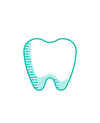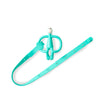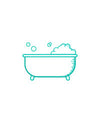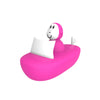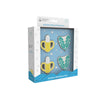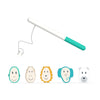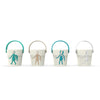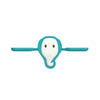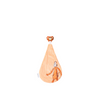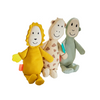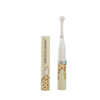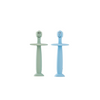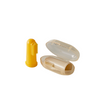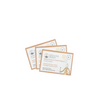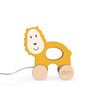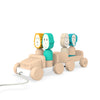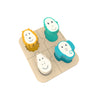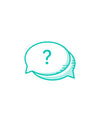Toddler Developmental Milestones aged 12-24 months old
The first thing to note is that all children are different and will progress at their own rate, but this blog gives you an idea of what you can expect your toddler to do at each stage. If you have any concerns about your child’s development, then contact your health visitor who will be able to advise you.
Thirteen months

Shortly after their first birthday most children will use a few words properly such as “bye-bye”. They will also be able to bend over to get something they want from the floor and can probably stand unsupported for a short time. Around half of toddlers at this stage will be able to play games like “peekaboo” and drink from a cup.
Fourteen months
Your child will be learning new words all the time, as many as a few a week. He or she will probably enjoy filling containers and tipping out the contents, this game can keep little ones entertained for a long time. Some toddlers may be able to point to a body part when asked and a few might be able to use a spoon to feed themselves.
Fifteen months
This is the stage when children can start to become very playful, playing with a ball is likely to be a favourite thing to do, and around half of children at this stage can run after the ball to pick it up. Your child’s favourite word at this point, and you will hear it a lot is “no”!
Sixteen months

Around sixteen months your child might be able to perform more fiddly tasks, such as turning the pages of a book. Our Matchstick Monkey Book is great for children of this age, it has textured trails for toddlers' fingers to follow and it is a good way to introduce colour. This age is also when temper tantrums can emerge so be prepared for these when they arrive.
Children at this point are more likely to become attached to a particular soft toy as a source of comfort. If your child is attached to a special cuddly friend, it might be a good idea to buy a spare, or two! If you need a new cuddly friend for your child our Plush Monkey comes in small, medium and large sizes, he has Velcro hands so he can be attached to the buggy or can swing from the curtain poles at home!
Seventeen months
Children at this stage become increasingly active, with lots of energy to burn – you could consider getting him or her a “ride on” type toy to scoot about on. If you have some toy cups and kettles your child may well enjoy making you a cup of tea or feeding a doll.
Eighteen months
Children in this age group are all go, they can pedal a trike or scoot along on ride-on toys. He or she can enjoy “colouring” and many can scribble with toddler-friendly chunky pens and pencils. A few may be able to build a tower with four or more blocks or pots, some advanced children may start to show an interest in toilet training. You could think about getting your potty training equipment ready, our friends at Pottiagogo make a great travel potty that can fit in your buggy basket easily.
Nineteen months

Using a spoon is something that most children can do at this point, it can be very messy, and a decoy spoon can help. Toddlers who are around nineteen months old can run steadily and throw a ball underarm. A few may be able to point to a picture if you ask them to point to the cat, the bus, etc.
Twenty months
Pretend play will become a bigger part of your child’s day at this stage. They can pretend to feed a doll, talk on a pretend phone and generally copy a lot of what you do. You don’t need to have heaps of toys, some pots or plastic bowls and a few wooden spoons can provide lots of entertainment.
Twenty one months
You can keep your child busy by giving them simple tasks to help out, many children love brushing the floor or putting paper in the bin. Around half of children aged twenty months can build towers of 5 blocks and can throw a ball overarm.
Twenty two months

Most children aged twenty two months will have mastered kicking a ball forwards and can follow two- step instructions, such as get your book and bring it over. Some children can do simple puzzles and draw straight lines with chunky pencils or crayons. You might start to think about moving your child into a big kids bed at around this point.
Twenty three months
The majority of children in this age group are regularly using around fifty words, around half of toddlers can put two or three words together in a simple sentence. You might find them asking you “why” a lot! If there are other children at home or in day care they might start showing an interest in playing with other children.
Twenty four months
Around your child’s second birthday they may have mastered going down the stairs and can communicate using short sentences. A few children might be able to arrange toys or things into collections by type or colour. If you tell your child that you will do something “later” a few more advanced children of this age will understand what that means.
Between the ages of one and two, your child will change a lot. Being able to express needs and wants is of great benefit, but at the same time your child can become frustrated when they cannot do something. So may start to see the first signs of temper tantrums, although this is all about gaining independence so try to be patient. If you have any concerns about your child meeting any milestones please get in touch with your Health Visitor.

